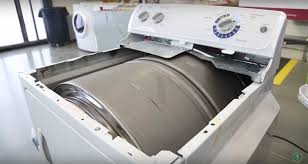
Breaking News
 Shocking Email From Epstein Files Implicates Former US Ambassador, Clintons, Bidens,...
Shocking Email From Epstein Files Implicates Former US Ambassador, Clintons, Bidens,...
 Episode 490 - The 9th Annual Fake News Awards
Episode 490 - The 9th Annual Fake News Awards
 Epstein Files Dump, Gov't Shuts Down, Trump ROASTS Don Lemon...
Epstein Files Dump, Gov't Shuts Down, Trump ROASTS Don Lemon...
 SILVER MASSACRE: The Crash Reveals CME-Shanghai Coordination (Bullish Signal)
SILVER MASSACRE: The Crash Reveals CME-Shanghai Coordination (Bullish Signal)
Top Tech News
 Critical Linux Warning: 800,000 Devices Are EXPOSED
Critical Linux Warning: 800,000 Devices Are EXPOSED
 'Brave New World': IVF Company's Eugenics Tool Lets Couples Pick 'Best' Baby, Di
'Brave New World': IVF Company's Eugenics Tool Lets Couples Pick 'Best' Baby, Di
 The smartphone just fired a warning shot at the camera industry.
The smartphone just fired a warning shot at the camera industry.
 A revolutionary breakthrough in dental science is changing how we fight tooth decay
A revolutionary breakthrough in dental science is changing how we fight tooth decay
 Docan Energy "Panda": 32kWh for $2,530!
Docan Energy "Panda": 32kWh for $2,530!
 Rugged phone with multi-day battery life doubles as a 1080p projector
Rugged phone with multi-day battery life doubles as a 1080p projector
 4 Sisters Invent Electric Tractor with Mom and Dad and it's Selling in 5 Countries
4 Sisters Invent Electric Tractor with Mom and Dad and it's Selling in 5 Countries
 Lab–grown LIFE takes a major step forward – as scientists use AI to create a virus never seen be
Lab–grown LIFE takes a major step forward – as scientists use AI to create a virus never seen be
 New Electric 'Donut Motor' Makes 856 HP but Weighs Just 88 Pounds
New Electric 'Donut Motor' Makes 856 HP but Weighs Just 88 Pounds
 Donut Lab Says It Cracked Solid-State Batteries. Experts Have Questions.
Donut Lab Says It Cracked Solid-State Batteries. Experts Have Questions.
Innovative Machine Dries Clothes In 20 Minutes Using 70% Less Energy And NO Heat

New ultrasonic drying technology uses 70% less energy and dries clothes in 20 minutes - no heat required!

Credit: US DOE
The topic of washing and drying clothes might not be nearly as sexy as, say, renewable energy and Tesla cars, but it's an important one, considering that 80% of households in the U.S. use dryers which account for approximately 4% of all residential electricity consumption.
In an attempt to cut down on utility costs and benefit the environment, a number of eco-minded consumers have begun using clotheslines to dry their clothes. However, if the ultrasonic clothes dryer turns out to be as effective as researchers are predicting, environmentalists will no longer need to rely on clotheslines to dry their clothes – an exciting prospect, indeed.
TreeHugger relays that scientists at the Oak Ridge National Laboratory (ORNL), with support from the US Department of Energy's Building Technologies Office and GE Appliances, have been working on a prototype of an innovative clothes drying technology that could shorten drying time to an astounding 20 minutes. In addition, it could reduce the amount of energy used for each load by a whopping 70%!



